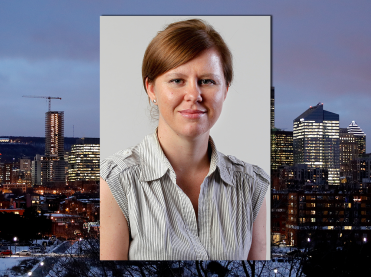"Where it is present, it infects institutions and systems. And where it is not acknowledged, it will fester."
We are not racist.
Denial is always the reflex reaction when the ugly truth rears its head.
Montreal Police Chief Sylvain Caron stuck to this automatic response track this week in the face of an independent report exposing overwhelming statistical evidence that his force routinely racially profiles blacks, Arabs and Indigenous people.
While professing himself humbled by the findings and ready to take aim at this “systemic discrimination,” he was quick to insist there’s no racism in the police force.
“On n’a pas de policiers racistes.”
It’s an eyebrow-raising statement for many reasons, not the least of which is it betrays a fundamental lack of understanding about what racism is. Additionally, when the person at the top of an organization that clearly needs a culture change absolves the individual rank and file on the spot, it fails to send a message of urgency.
But, be it wilful or blind, such ignorance isn’t out of character when we live in a state of denial about the extent of racism — even as incontrovertible evidence continues to pile up.
On Monday, it was the racial-profiling report confirming the pattern groups like the Centre for Research-Action on Race Relations have been sounding the alarm about over and over. Among the litany of troubling incidents brought to light are Montrealers who have been hassled by cops for taking out their recycling, laughing too loud and holding an ice cream cone while black.
Last week, it was the Viens Commission detecting “unacceptable” (perhaps a more accurate word is shameful) failures in the delivery of public services to First Nations and Innu people across Quebec, a determination that prompted an historic apology from Premier François Legault.
Last month, it was the Quebec Human Rights Commission issuing a 328-page report documenting cases of minorities, particularly blacks, Muslims and Arabs, being attacked in the streets. While going about their business, they reported being verbally harassed, spat on, insulted, physically assaulted and intimidated. (B’nai Brith has similarly noted a 50-per-cent increase in anti-Semitic incidents against the Jewish community.)
Disturbing altercations like these are on the upswing, the human rights commission said. And those sharing their experiences described a “before and an after” the Charter of Values, the Parti Québécois’s scuttled effort to regulate the dress of religious minorities, which was picked up, modified and passed into law by the Coalition Avenir Québec government this spring, in the form of Bill 21.
But, who, us? Are we racist?
No, we are not racist.
Legault has repeatedly denied the depth of racism in Quebec.
First, it was there’s no Islamophobia, later clarified to no prevalent undercurrent of Islamophobia. More recently Legault denied that Bill 21 has unleashed a wave of racism and hatred against minorities, particularly Muslim women. Lately he has been forced to defend Quebec against allegations of racism from outside, like the condemnation of Bill 21 by Calgary city council and denunciations of the law by campaigning federal leaders.
Then last week, Legault was forced to acknowledge one embarrassing and high-profile racist incident caught on camera for all the world to see. A man told New Democratic Party Leader Jagmeet Singh he should cut off his turban. This, according to Legault, was indeed racist.
But … wait for it …
“There are some people that are racist in Quebec. It’s not a systemic racism, but some people are racist and we have to fight against that,” Legault said.
It’s not that Montreal and Quebec are more racist than anywhere else, although not every place has a law that enshrines job discrimination based on religious belief. Racism, sadly, exists everywhere. Where it is present, it infects institutions and systems. And where it is not acknowledged, it will fester.
Painful as it is to admit, we are starting to own up to this pernicious problem. Whether it’s the racial-profiling study — and the fact it was even made public — or the consultations Montreal is holding on systemic racism and discrimination, each endeavour makes it that much more difficult to live in denial.
For Fo Niemi, the co-founder and executive director of CRARR, this is the silver lining of the report, more than the vindication it offers after 25 years of fighting injustice.
“I’m very, very pleased to now have the data that confirms many of the things that we see on the ground,” said Niemi. “No matter how much people want to deny the problem, it will catch up with you and the data will catch up with you. … It’s like denying climate change. It makes one lose credibility.”




























